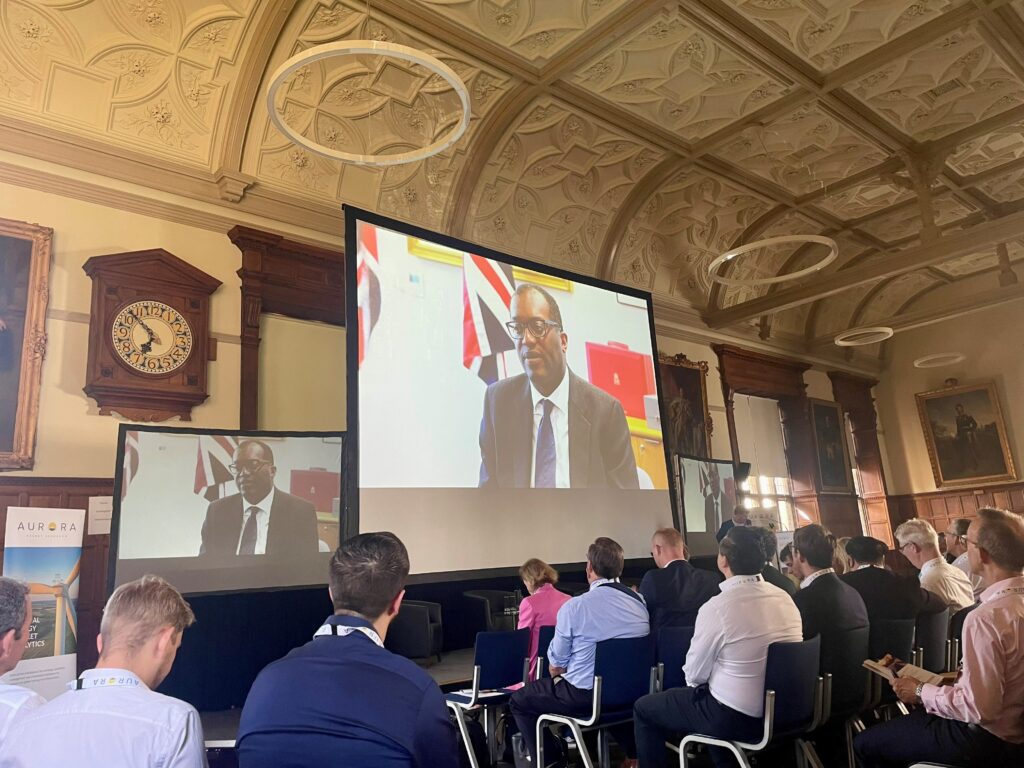Consumer bills still being set by marginal gas prices is a “problem that needs to be addressed,” said business and energy secretary Kwasi Kwarteng.
In a pre-recorded interview shown this morning (14 July) at the Aurora Spring Forum hosted by Aurora Energy Research, Aurora’s managing director, UK & Ireland, Dan Monzani questioned the minister about the case for substantive market design reform.
“You have an electricity pricing model, which was set up decades ago, where essentially, the electricity system was powered by gas and coal,” he said.
“We all in Europe, at different speeds but every country in Europe is looking to have far more reliance on renewables, sustainable sources of power. Yet the problem is that the price the consumer pays is still, across Europe generally, related to the marginal cost of gas. And it can’t be right that we’re stressing renewables, we’re celebrating the relative cheapness of renewables, while at the same time, the cheapness of those renewables isn’t reflected in the price the consumer pays, ultimately for electricity.”
Amid continued high consumer energy prices – with Cornwall Insight now predicting the price cap will jump by over 60% in October – the question of market reform has become increasingly pressing in recent months.
Indeed, Prime Minister Boris Johnson called the system “ludicrous” in an interview with the BBC in June, and this month Ofgem has announced it is eyeing a range of reforms to help accelerate the green energy transition in Britain, including decoupling the wholesale gas and power prices.
The need for market reform has been somewhat highlighted by the record low prices seen in the most recent Contracts for Difference auction (CfD). With offshore wind now sitting at a strike price of £37.35/MWh, whilst continued volatility in the gas market has caused predictions for the upcoming price cap to jump to £3,244 in October.
Talk of energy security and concern for the coming winter in particular has run through the talks at the forum, although Kwarteng noted that the coming winter may not be as bad as expected given measures brought in to sure up supply in advance.
“The situation is challenging, we had a very challenging situation last winter in terms of gas prices, I think it’d be fairly challenging this winter, I’m not quite sure it will be as bad, because we’re making provision for new gas coming on stream,” he noted.
Moves to bolster Britain’s energy security beyond this winter have also been brought in, with the British Energy Security Strategy for example including a number of measures such as increased renewables targets, boosting offshore wind to 50GW by 2030 as well as mooting a five-fold increase in solar power.
The wider volatility in energy markets, driven by gas volatility, could lead to an acceleration of the transition to a decarbonised energy system.
“Everyone can see that renewables, offshore wind, particularly onshore wind, hydrogen – the possibilities of hydrogen are being discussed – lots of people see this as a big opportunity,” finished Kwarteng.
“And I hate to say it, but I think that a lot of that conversation has been accelerated by this illegal war, these acts of aggression in Ukraine.”






